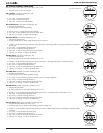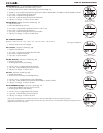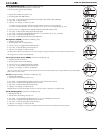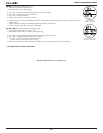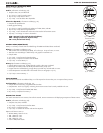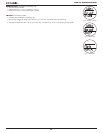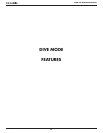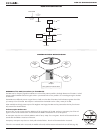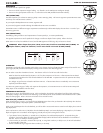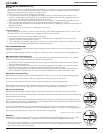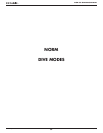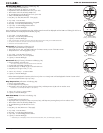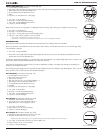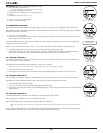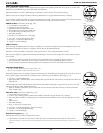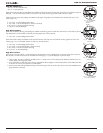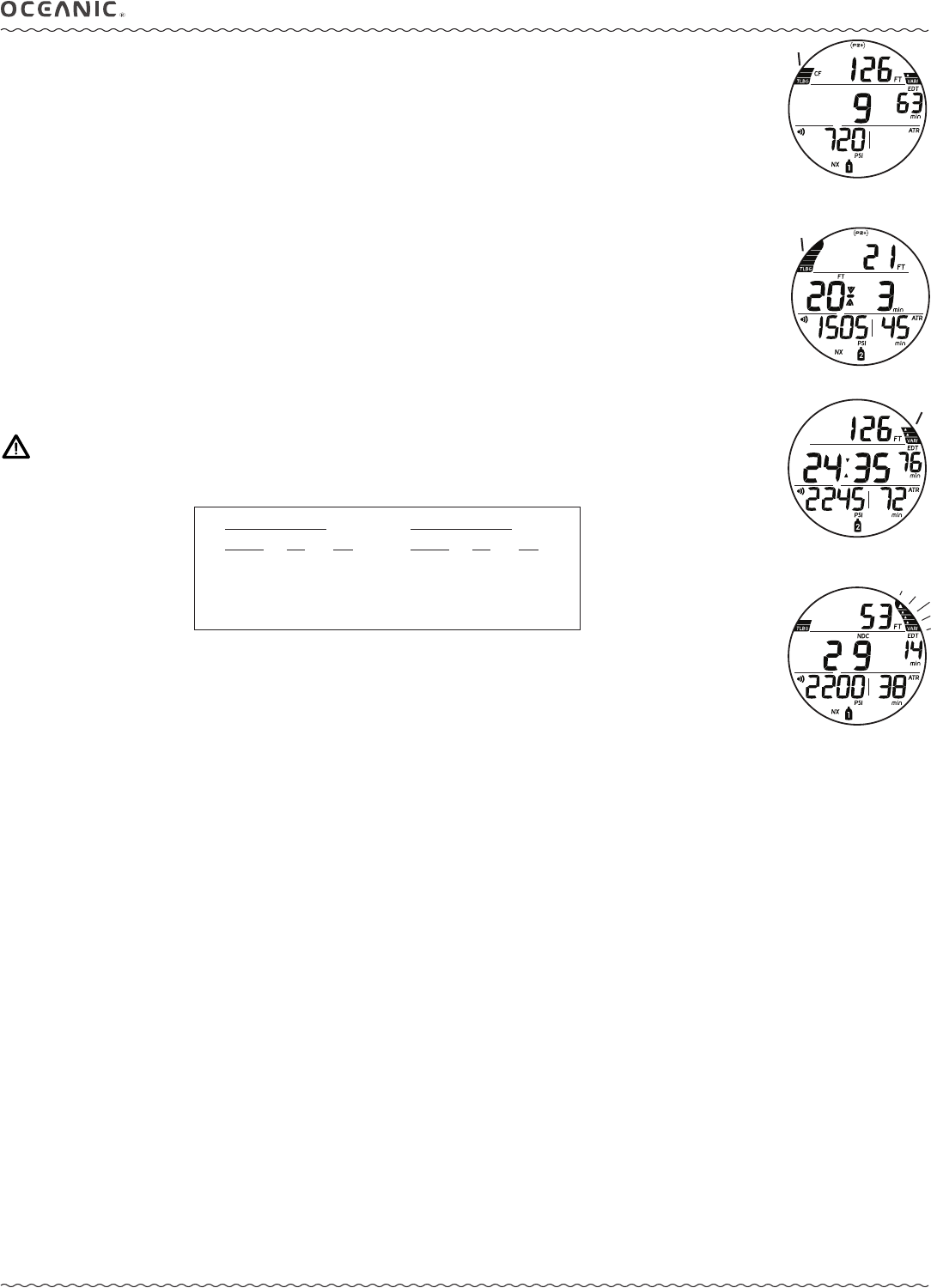
28
ATOM 3.0 OPERATING MANUAL
© 2002 Design, 2011 Doc. No. 12-5216-r02 (9/6/11)
BAR GRAPHS
The ATOM features 2 specific bar graphs.
> The one on the left represents nitrogen loading. It is referred to as the TLBG (Tissue Loading Bar Graph).
> The one on the right represents ascent rate. It is referred to as the VARI (Variable Ascent Rate Indicator).
TLBG (NORM/FREE)
The TLBG represents your relative No Deco (Fig. 83a) or Deco status (Fig. 84a). The lower 4 segments represent No Deco status
and the top one indicates a Deco condition.
As your Depth and Elapsed Dive Time increase, segments add.
As you ascend, segments recede indicating that additional No Deco time is available.
The ATOM monitors 12 different nitrogen compartments simultaneously and the TLBG displays the one that is in control of your
dive at any given time.
VARI (NORM/GAUG)
The VARI (Fig. 85a) provides a visual representation of ascent speed (i.e., an ascent speedometer).
The segments represent two sets of speeds which change at a reference depth of 60 FT (18 M). Refer to the chart.
When ascent is too fast, the audible will sound, and all VARI segments will flash (Fig. 86) until ascent is slowed.
WARNING: When deeper than 60 FT (18 M), ascent rates should not exceed 60 FPM (18 MPM). At
depths of 60 FT (18 M) and shallower, ascent rates should not exceed 30 FPM (9 MPM).
ALGORITHM
The ATOM is configured with 2 algorithms which allows you to choose which set of NDLs (No Deco Limits) will be used for nitro-
gen/oxygen (Ni/O2) calculations and displays relating to Plan and Dive Time Remaining (DTR).
You can select to use either the DSAT or the PZ+. The selection will lock in for 24 hours after the last dive.
DSAT has been the standard used by Oceanic in all of its dive computers until this time. It features NDLs that are based
on exposures and test data which also formed validation for the PADI RDP. It imposes restrictions for repetitive Deco dives,
considered more risky.
PZ+ (Pelagic Z+) performance is based on Buhlmann ZHL-16c. It features NDLs that are considerably more conservative
especially at shallower depths.
To create even greater margins of safety with respect to decompression, a Conservative Factor as well as No Deco Deep and
Safety Stops can be included for No Deco dives.
CONSERVATIVE FACTOR (CF)
When the CF is set On, the allowable dive times, which are based on the algorithm selected and used for Ni/O2 calculations
and displays relating to Plan and Dive Time Remaining, will be reduced to the values available at the altitude level that is 3,000
feet (915 meters) higher. Refer to the charts in the back of this manual for times.
DEEP STOP (DS), NORM No Deco only
When the DS selection is set On, it will trigger during NORM No Deco dives when you descend to 80 FT (24 M), then calculate
(and continually update) a Stop Depth equal to 1/2 the Max Depth.
While 10 FT (3 M) deeper than the calculated DS, you will be able to access a DS Preview screen that will display the current DS
Stop Depth/Time.
Upon initial ascent to within 10 FT (3 M) below the calculated Stop Depth, a DS screen displaying a Stop Depth at 1/2 the Max
Depth will appear with a Countdown Timer beginning at 2:00 (min:sec) and counting down to 0:00.
> If you descend 10 FT (3 M) below, or ascend 10 FT (3 M) above, the calculated Stop Depth for 10 seconds during the
countdown, the No Deco Main will replace the DS Main display and the DS feature will be disabled for the remainder of
that dive. There is no Penalty if the DS is ignored.
> In the event that you enter Deco, exceed 190 FT (57 M), or a High O2 condition (=> 80%) occurs, the DS will be disabled
for the remainder of that dive.
> The DS is disabled during a High PO2 Alarm condition (=> Set Point).
Fig. 83 - NO DECO
Fig. 84 - DECO
a
a
Deeper than 60 FT (18 M)
VARI Ascent Rate
Segments FPM MPM
0 0 - 20 0 - 6
1 21 - 30 6.1 - 9
2 31 - 40 9.1 - 12
3 41 - 50 12.1 - 15
4 51 - 60 15.1 - 18
5 60 + 18 +
60 FT (18 M) & Shallower
VARI Ascent Rate
Segments FPM MPM
0 0 - 10 0 - 3
1 11 - 15 3.1 - 4.5
2 16 - 20 4.6 - 6
3 21 - 25 6.1 - 7.5
4 26 - 30 7.6 - 9
5 30 + 9 +
Fig. 85 - DIVE MAIN
(Ascent normal)
Fig. 86 - DIVE MAIN
(Ascent Too Fast)
a



